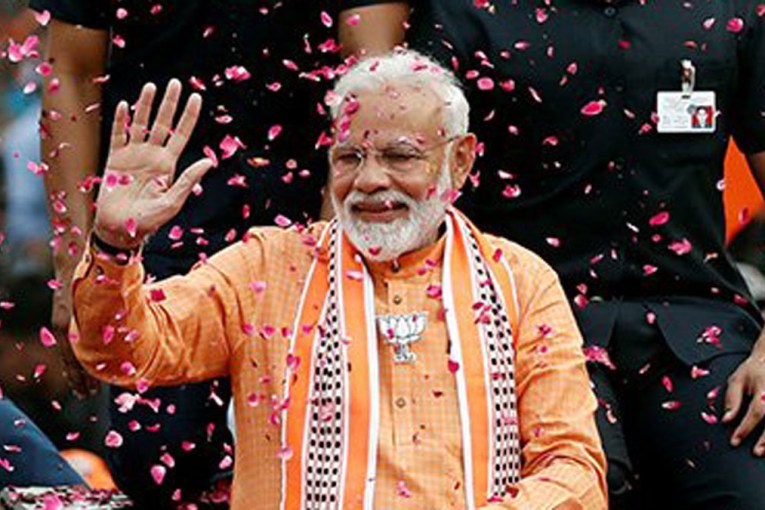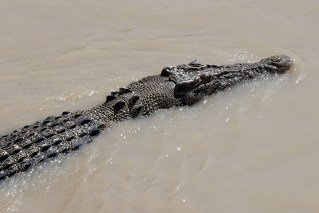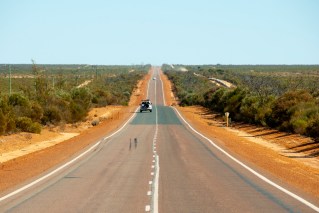Australia’s bushfire response is expected to be dented by the coronavirus pandemic, with emergency agencies fearing volunteer numbers will dry up and fatigue may set in.
The National Bushfire Recovery Agency’s co-ordinator Andrew Colvin also hit out at “misconceptions” around the agency’s response to last season’s summer disasters, rubbishing “wildly inaccurate” reporting of suicides and defending the help given to those rebuilding their lives.
Mr Colvin, the former commissioner of the Australian Federal Police, gave a rare extended briefing on Monday on the NBRA’s work after the 2019-20 bushfire season and the preparation for the 2020-21 season.
As early season blazes burn across Australia, he said cleanup from the ‘black summer’ still continues and new victims are still emerging.
“We are seeing people, even now, come forward for the very first time, and ask for relief and support,” Mr Colvin said.
“Even as recently as last month, NSW for instance, saw a lot of new presentations from people coming forward asking for their sites to be cleared.”

Area burnt in the 2019-20 fire season. Photo: NBRA
He said more than 33 lives and 3000 properties were lost in the past fire season, with 33 million hectares of land burnt.
Mr Colvin called the loss of flora and fauna “almost unimaginable”, mentioning some reports and projections which had estimated about one billion animals had been killed – but saying the true number could be twice or three times as high, including around 100,000 head of livestock.
The 2020-21 fire season has already been declared in some parts of NSW, including the north and south coasts, more than a month earlier than the traditional October start date.
The season is expected to be wetter and not as extreme as the last season. However, looming large over this season’s bushfire threat is the spectre of the global coronavirus pandemic.
Fire services nationwide recently told The New Daily they were concerned about how COVID would hamper response efforts this summer, with questions about how to safely get firefighters from interstate or overseas to help.

Graphic: NBRA
Mr Colvin admitted it took the NBRA “a while to find COVID-safe ways of doing things” in recovery efforts, and the pandemic was front of mind this season.
“If we see a summer like we did last year, that’s going to test our abilities,” he said, adding rural fire services and local councils were building COVID-safe evacuation plans.
Mr Colvin also said fatigue from the past season, as well as ongoing fears about the pandemic, may hamper firefighting efforts this year, noting that many people who volunteer for rural fire services and community groups are often older people and therefore in higher-risk categories for the virus.
“It’s an ageing cadre,” he said, saying Australia’s volunteer culture was proud but strained at the moment.
“These are some of those less noticeable impacts of the pandemic.”
The pandemic has also taken a broader toll on recovery efforts, Mr Colvin said, pointing to how travel restrictions and lockdowns had deprived fire-hit areas of their usual tourism influx.
The virus forced a quick pivot in the NBRA’s rebuild plans, he said, forcing some plans – for instance, for music festivals – to be scrapped and retooled, with more COVID-friendly tourism features like scenic walking tracks and viewing platforms prioritised instead.

Andrew Colvin with Emergency Management Minister David Littleproud and Prime Minister Scott Morrison in January. Photo: AAP
The federal government and NBRA attracted criticism in some quarters over allegations of being too slow to respond to homes lost and communities ruined after last season’s firestorms.
Mr Colvin spent a chunk of the briefing addressing what he called misconceptions about his agency’s work, saying it had cleared nearly 5000 properties of fire debris.
“If you needed your property cleaned up, it was cleaned up,” he said.
Mr Colvin said the NBRA had spent nearly $1.8 billion on recovery efforts, including making 300,000 separate payments to business, farmers, councils, charities and individuals.
He also addressed publicised cases of fire victims still living in tents, saying every person who had lost a home were offered hotels or other accommodation but some chose to remain on their properties.
He also claimed there had been “a heck of a lot” of claims on social media about spikes in suicide in bushfire areas that had been “wildly inaccurate”, adding that figures on such trends were still being collected.
“I’m not going to deny that suicides have occurred, and we can only ever speculate about what’s on someone’s mind,” Mr Colvin said.
He said the NBRA had been looking at a “long list” of mental health responses in hard-hit communities, including pouring resources into crisis centres and counselling.
However, Mr Colvin admitted the NBRA, set up early this year to spearhead the recovery from the catastrophic fires, had made missteps – saying communication with victims could have been better.
He said the agency had engaged a team of new support officers to go into fire-ravaged communities, helping victims understand what government support was available and how to access it.
“One of the overwhelming messages we hear from the community is they feel they’ve been forgotten about,” Mr Colvin admitted.
“I’m here to advocate for bushfire communities and remind everyone what they went through last summer was unprecedented.”









